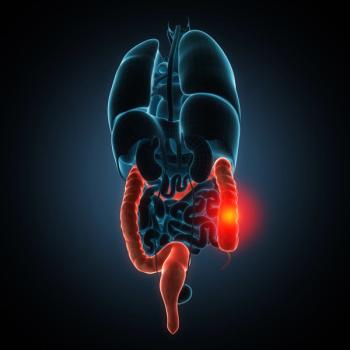
This study was the first to demonstrate efficacy of front-line treatment in the period after initial chemotherapy.

This study was the first to demonstrate efficacy of front-line treatment in the period after initial chemotherapy.

The results of the new study were presented during the virtual scientific program of the 2020 American Society of Clinical Oncology (ASCO) Annual Meeting.

Daunorubicin and cytarabine liposome for injection is a dual-drug liposomal encapsulation of cytarabine and daunorubicin approved by the FDA and EMA for the treatment of adults with newly diagnosed therapy-related AML or AML with myelodysplasia-related changes.

The recent analysis studied 400 patients with thoracic cancers who received chemotherapy within 3 months of being diagnosed with COVID-19.

Trastuzumab deruxtecan (T-DXd) (Enhertu) demonstrated strong efficacy in a phase 2 trial for treatment of HER2-positive metastatic breast cancer.

Treatment with avelumab (Bavencio) potentially cured 8 of 15 women in a trial with gestational trophoblastic tumors resistant to single-agent chemotherapy.

Atezolizumab (Tecentriq) approved in combination with bevacizumab (Avastin) for the treatment of patients with unresectable or metastatic hepatocellular carcinoma who have not received prior systemic therapy.

In 2017 alone, there was an estimated 785 fewer cancer deaths in states that adopted Medicaid expansion.

At 5 years follow up, the data showed that the OS for women on olaparib was 42.1%, while the placebo OS was 33.2%.

Pharmacy Times® spoke with Jennifer Craig, PharmD, CSP, about Skin Cancer Awareness Month and the importance of skin care.

Lenvatinib (Lenvima, Eisai) plus pembrolizumab (Keytruda, Merck) showed significant response rates in unresectable hepatocellular carcinoma and in patients with metastatic clear cell renal cell carcinoma who progressed following immune checkpoint inhibitor therapy.

Treatment of COVID-19 with both hydroxychloroquine and azithromycin also was strongly associated with increased risk of death.

FDA has granted Fast Track designation to Cardiff Oncology’s onvansertib, an oral and highly-selective Polo-like Kinase 1 (PLK1) inhibitor, for the second-line treatment of patients with KRAS-mutated metastatic colorectal cancer.

ASCO’s special report summarizes a wide range of policies and practices developed by cancer facilities, as well as guidance provided by government agencies and other medical societies.

The therapy is approved for patients with squamous or non-squamous disease and regardless of programmed death-ligand 1 (PD-L1) expression.

Oncology teams may struggle to balance effectively caring for patients with lung cancer while avoiding exposure risks and safety amid the COVID-19 pandemic.

Why was a customer prescribed an allergy medication when she was expecting a pain pill?

The cause of the majority of rare diseases is associated with 80% of the cases being genetically linked due to inheritance of mutated genes.

Over time, hub operations have matured to act as sort of a middleman between manufacturers and specialty pharmacies.

According to study findings published in Cancer, mammography screenings reduce the rates of advanced and fatal cancers by more than 40%.

Many pharmaceutical manufacturers consider accreditation a prerequisite when either building their network or adding pharmacies to their network.

New treatments with biological agents and vaccines are creating a pathway for patients with metastatic CRC.

The approval is based on an interim analysis from the phase 3 IMpower110 study, which showed atezolizumab monotherapy improved overall survival by 7.1 months compared with chemotherapy in people with high PD-L1 expression, according to a press release.

The anti-cancer medicine venetoclax may improve the current therapy for estrogen receptor-positive (ER+) breast cancer.

Ripretinib is indicated for adult patients who have received prior treatment with 3 or more kinase inhibitor therapies, including imatinib, according to an FDA press release.

Although the average wholesale price of the agents is more than $13,000, the investigators found that 9% of patients had a 0% co-pay throughout the 6-month period.

Ovarian cancer is the fifth most common cause of death from cancer among women in the United States, according to a press release.

A community pharmacy-based intervention program was utilized to enhance AET adherence.

Sacituzumab govitecan-hziy, approved by the FDA on April 22, 2020, is the first in its class to treat metastatic, triple-negative breast cancer in patients who have received at least 2 prior therapies for metastatic disease.

Selpercatinib is the first therapy approved specifically for cancer patients with rearranged during transfection (RET) gene alterations.